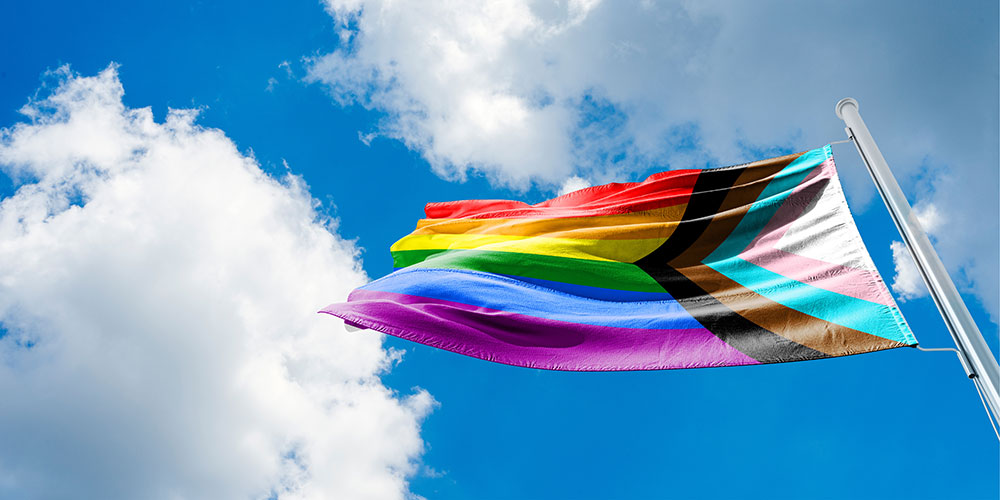In the past year, 41% of LGBTQ+ youth seriously considered attempting suicide and 20% attempted suicide, according to a new survey from the Centers for Disease Control and Prevention (CDC).
The Youth Risk Behavior Survey, conducted every other year, surveys thousands of high schoolers from public and private schools across all 50 states and the District of Columbia. The survey focuses on sexual behavior, substance use, experiences of violence, mental health, and other important issues impacting teens.
“Across all of those outcomes that we looked at, experience of violence, poor mental health and suicidal thoughts and behaviors, we do see this really significant disparity between LGBTQ+ young people and their cisgender and heterosexual peers,” Dr. Kathleen Ethier, director of the CDC’s division of adolescent and school health, told ABC News. “That has been the case for a while.”
RELATED: Another Federal Judge Blocks Biden’s New Title IX Rule Expanding LGBTQ+ Protections
In 2023, 65% of LGBTQ+ high school students said they experienced persistent feelings of sadness and hopelessness during the past year compared to 31% of cisgender and heterosexual peers. Another 53% also reported having poor mental health during the last 30 days compared to 21% of their peers.
Female students are also more likely to experience poor mental health compared to their male peers. In 2023, 27% of females seriously considered attempting suicide in the previous years compared to 14% of males. About 39% of females also reported experiencing poor mental health during the previous 30 days compared to 19% of males. Additionally, 53% of female students reported experiencing persistent feelings of sadness or hopelessness during the previous year compared to 28% of males.
Substance Use and Violence Among LGBTQ+ Teens, Females
The survey found LGBTQ+ teens were also at higher risk of substance abuse. About 26% of LGBTQ+ students said they drank alcohol in the past 30 days compared to 21% of their cisgender and heterosexual peers, and 25% said they used marijuana compared to 14% of their peers.
Another 18% of LGBTQ+ students reported having ever misused prescription opioids, and 15% reported having ever used illicit drugs. Comparatively, 8% of cisgender and heterosexual students said they had used or misused illicit drugs or prescription opioids.
The survey also found LGBTQ+ students were more likely to currently be misusing prescription opioids, with 7% reporting doing so in the past 30 days compared to 3% of cisgender and heterosexual peers.
RELATED: Student Wellness: Schools Adopting Various Approaches to Boost Mental Health on Campus
Female students are also more likely to use substances in the previous 30 days compared to male students. About 24% of female students drank alcohol in the previous 30 days and 19% used marijuana, compared to 20% and 15% of male students, respectively.
LGBTQ+ students are more likely to experience violence, causing many to miss school. About 30% said they were bullied at school and about 20% said they missed school due to safety concerns.
Female students were also more likely than their male peers to experience violence. In 2023, two in 20 female students experienced sexual violence by anyone, and more than one in 10 had ever been forced to have sex. The percentage of female students who missed school due to safety concerns increased from 10% in 2021 to 16% in 2023.
Benefits of Implementing Policies That Support LGBTQ+ Students
The CDC notes schools that have put policies and practices in place that support LGBTQ+ youth have seen improved mental health and fewer suicidal thoughts and behaviors — both among LGBTQ+ students and heterosexual and cisgender students.
“We also know how to make things better for LGBTQ+ young people, and so we know that there are things that their schools could be doing to make them feel safer and more supported, and that when their schools do that, not only do LGBTQ+ young people do better, but their heterosexual peers do better as well,” Ethier said. “And so, we are really focused on making sure that we can do everything that we can do to get those effective policies and practices out there for schools and so that they can create better environments for those young people.”
If you or someone you know is struggling with mental health and may need support, contact the National Alliance on Mental Illness at 1-800-950-NAMI (6264) or the Substance Abuse and Mental Health Services Administration at 1-800-662-HELP (4357).







